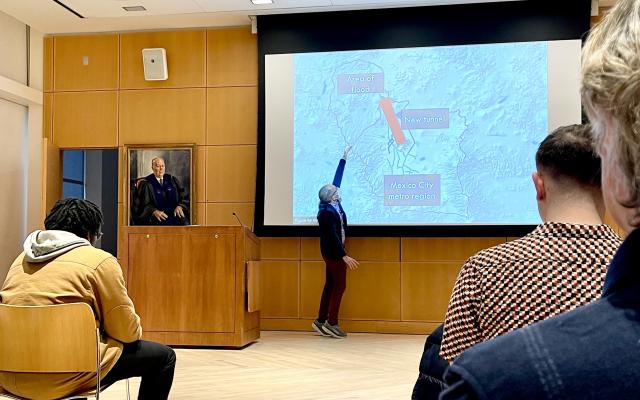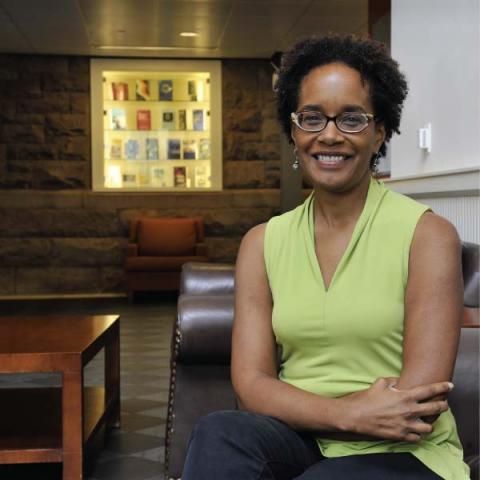
We recently hosted two extraordinary guests who came to campus as part of our newest initiative, the Humanistic Design Speaker Series. Both talks focused on the societal consequences new technologies can bring to society and the role designers and engineers play in perpetuating injustice and social-economic and racial bias through the implementation of their innovations.
Sarah Fox, Assistant Professor at Carnegie Mellon University in the Human-Computer Interaction Institute, discussed the ramifications of introducing artificial intelligence (AI) labor into essential worker industries. Fox cited her study of robotic cleaning equipment used within the airport industry during the pandemic.
Although the innovation intended to relieve the human workforce of the additional duties associated with the continual deep cleaning needed during the pandemic, the bots only added to the staff's workload. In addition, essential workers had little to no training on how to interact with the AI technology, little to no support in troubleshooting the technology, and received zero acknowledgment of the corrections and innovations they initiated to rectify the bots' shortcomings.
Fox highlighted the myriad ways technology hype, often propagated by influential decision-makers, tends to disregard the voices and expertise of those implementing and bearing the cost of the technological innovation.
Keller's executive director Cornelia Huellstrunk was on hand to better understand the critical function designers and engineers play in creating just and equitable societies.
"Sarah's presentation and her critical research remind us of how important it is to deeply understand today's complex, wicked problems and the power of design approaches in addressing these challenges," said Huellstrunk.
In cultural anthropologist Dean Chahim's talk, he proposed the idea of counter-engineering, the concept that designers and engineers have the power of refusal when contemplating technological advancements.
Chahim discussed his ethnographic research in Mexico City, studying how the current sewer systems were designed to flood poor neighborhoods to protect wealthy ones. His passionate and rich presentation spoke of the control the ruling class has over what engineers and innovators create and how their technologies are implemented, which insulates their power and strengthens their oppression of the marginalized.
Anthropology professor Carolyn Rouse is one of the key organizers of the Humanistic Design speaker series. As she introduced Chahim to the Princeton campus audience, she remarked on how valuable it is for future engineers to be aware of the impact their work can have.
"Dean's brilliant research details how engineers are wittingly and unwittingly co-opted into building systems that reproduce unequal power relationships," said Rouse. Her statement emphasizes how essential it is when building solutions that we look at the impact of the whole, even if the intended audience is only a small subset of that whole.
The Humanistic Design Speaker Series allows the Princeton community to explore the unintentional and sometimes intentional consequences of technological advancements on society and to help build future solutions that mitigate injustice and reveal and deconstruct current biased systems.
